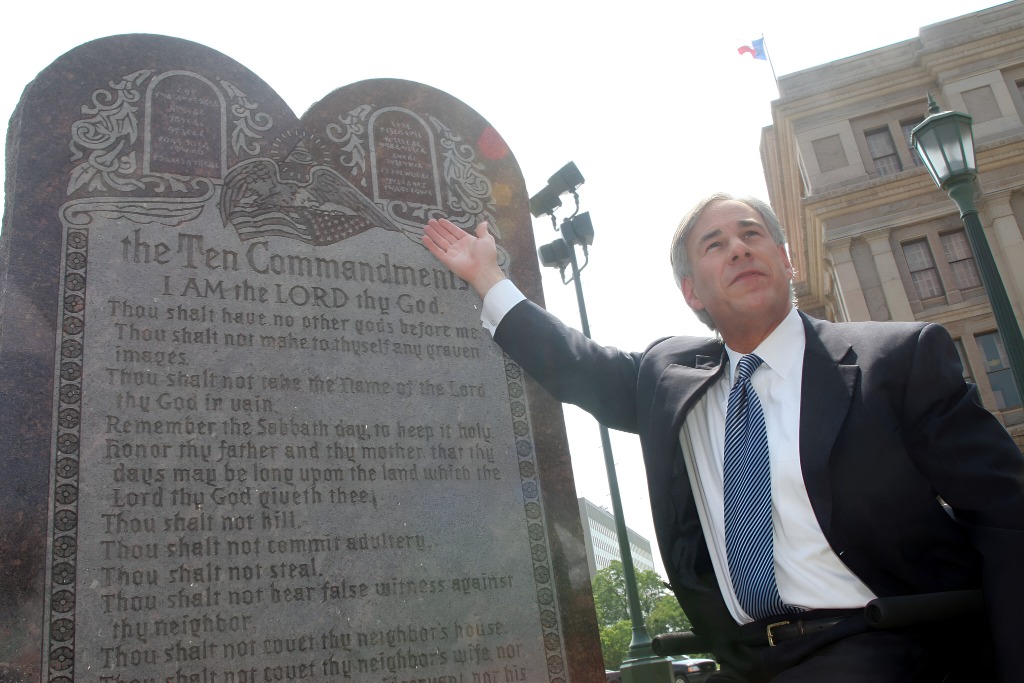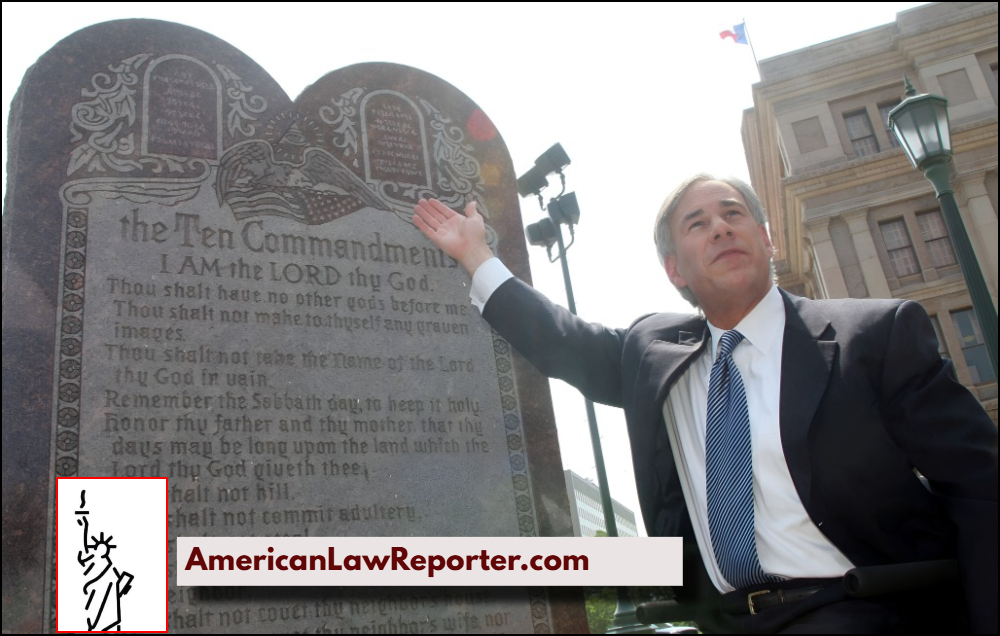Texas Governor Greg Abbott has signed a controversial new law, Bill 10, requiring all public elementary and secondary school classrooms across the state to display a poster of the Ten Commandments.
The mandate, which takes effect on September 1, 2025, is already drawing legal threats from civil liberties organizations, reigniting a national debate over the separation of church and state in public education.
“Texas is where the American dream lives,” said Governor Abbott in a statement released Saturday, June 21, after signing the bill into law. “Today, I signed critical legislation… that protects the safety of Texans and safeguards the individual freedoms that our great state was founded on.”

Under Section (D)(1) of Bill 10, any classroom lacking a copy of the Ten Commandments must accept a donated version that does not include any additional content. While schools are permitted to purchase the posters using district funds, they are not required to do so.
Legal Experts Warn of Church-State Conflict
Civil rights and legal advocacy groups quickly signaled their opposition. In a joint statement in May, the American Civil Liberties Union (ACLU) of Texas, Americans United for Separation of Church and State, and the Freedom From Religion Foundation pledged to file a lawsuit, arguing that Senate Bill 10 violates constitutional protections against government-endorsed religion.
“Public schools are not Sunday schools,” said legal observers from the coalition. “This law represents a clear attempt to impose religious doctrine on students and their families.”
Constitutional law scholars say the bill is likely to trigger court challenges under the Establishment Clause of the First Amendment, which prohibits government institutions from favoring one religion over another.
Abbott’s Broader Push for Religion in Schools

The Ten Commandments legislation is part of a broader package of education laws recently signed by Abbott. SB 11 and SB 965, also enacted Saturday, promote voluntary prayer and Bible reading time in public schools.
Supporters say the new laws reflect traditional Texas values and parental rights. Critics, however, view them as a government endorsement of Christianity that excludes students from diverse religious and non-religious backgrounds.
National Echoes and Implications
Texas is not alone. In April, the Alabama House of Representatives passed a similar bill requiring the display of the Ten Commandments in K-12 classrooms where U.S. History is taught.
Legal analysts warn that these state-level laws could escalate to a constitutional showdown in federal courts, potentially reaching the U.S. Supreme Court. A key question: whether state mandates involving religious texts in schools can survive post-Kennedy v. Bremerton School District (2022), a Supreme Court ruling that expanded protections for individual religious expression in public schools but did not clearly authorize government-mandated religious displays.
What Comes Next
As school districts across Texas prepare for the 2025–2026 school year, many administrators are awaiting guidance—and bracing for litigation. While some rural and religiously conservative districts may welcome the posters, others in more diverse urban areas could resist the mandate.
One thing is clear: Bill 10 is poised to become a major legal and cultural flashpoint in the coming months.

